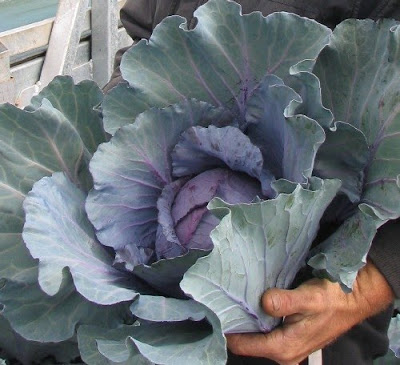Going organic:
Dump the mega-corps and save the world?
By Steve Russell / The Rag Blog / December 4, 2009
A new report from The Soil Association [see article below] says a worldwide switch to organic farming would cut CO2 emissions by 11%.
That’s a huge return that ought to be considered for the sheer size of the result.
There are two problems to be addressed, one practical and one political.
The practical one is to compute the effect on yield, something that concerns farmers but also has to concern consumers.
The political one is the mega-corporations that produce the chemicals — herbicides and pesticides and fertilizers. They own so many farm state politicians that they are even able to get them to vote against farmers now and then.
It’s a long process, but to do anything about it you have to work out the yield problem to get the farmers on your side and then take on the Monsantos of the world. This is a hard enough slog that putting all the climate eggs in this basket would be hazardous to your health, but it needs to be considered as one front among many.
The only policy that does not require such a multi-front political war is a carbon tax, since it goes directly at the problem. On this front, a carbon tax would change the economics of chemical-based agriculture and jog the numbers in favor of organics regardless of yields.
Soil Carbon and organic farming (report)
By Gundala Azeez / December 2, 2009
New research from the Soil Association reveals that if all UK farmland was converted to organic farming, at least 3.2 million tonnes of carbon would be taken up by the soil each year — the equivalent of taking nearly 1 million cars off the road.
According to the Intergovernmental Panel on Climate Change (IPCC), 89% of agriculture’s global greenhouse gas (GHG) mitigation potential is from carbon sequestration — a fact that governments seem to be ignoring in the critical run-up to climate change talks in Copenhagen (COP 15) in December.
The research’s key findings are:
- The widespread adoption of organic farming practices in the UK would offset 23% of UK agricultural emissions through soil carbon sequestration alone, more than doubling the UK Government’s pathetically low target of a 6-11% reduction by 2020
- A worldwide switch to organic farming could offset 11% of all global greenhouse gas emissions. Raising soil carbon levels would also make farming worldwide more resilient to extremes of climate like droughts and floods, leading to greater food security
- On average organic farming produces 28% higher levels of soil carbon compared to non-organic farming in Northern Europe, and 20% higher for all countries studied (in Europe, North America and Australasia)
- In the UK, grasslands and mixed farming systems also have a vital role to play, and soil carbon may go a long way to offsetting the methane emissions from grass-fed cattle and sheep.
Source / Energy Bulletin
- Download a summary of the report (pdf, 508Kb).
- Download the full report (pdf, 2.19Mb)



















I agree with what you say. If global warming is to be stopped, a carbon tax is the way to go. A good source of information these days is the new big picture think tank "Post Carbon Institute". So far as I can tell these are good smart people trying to help us through the times to come.